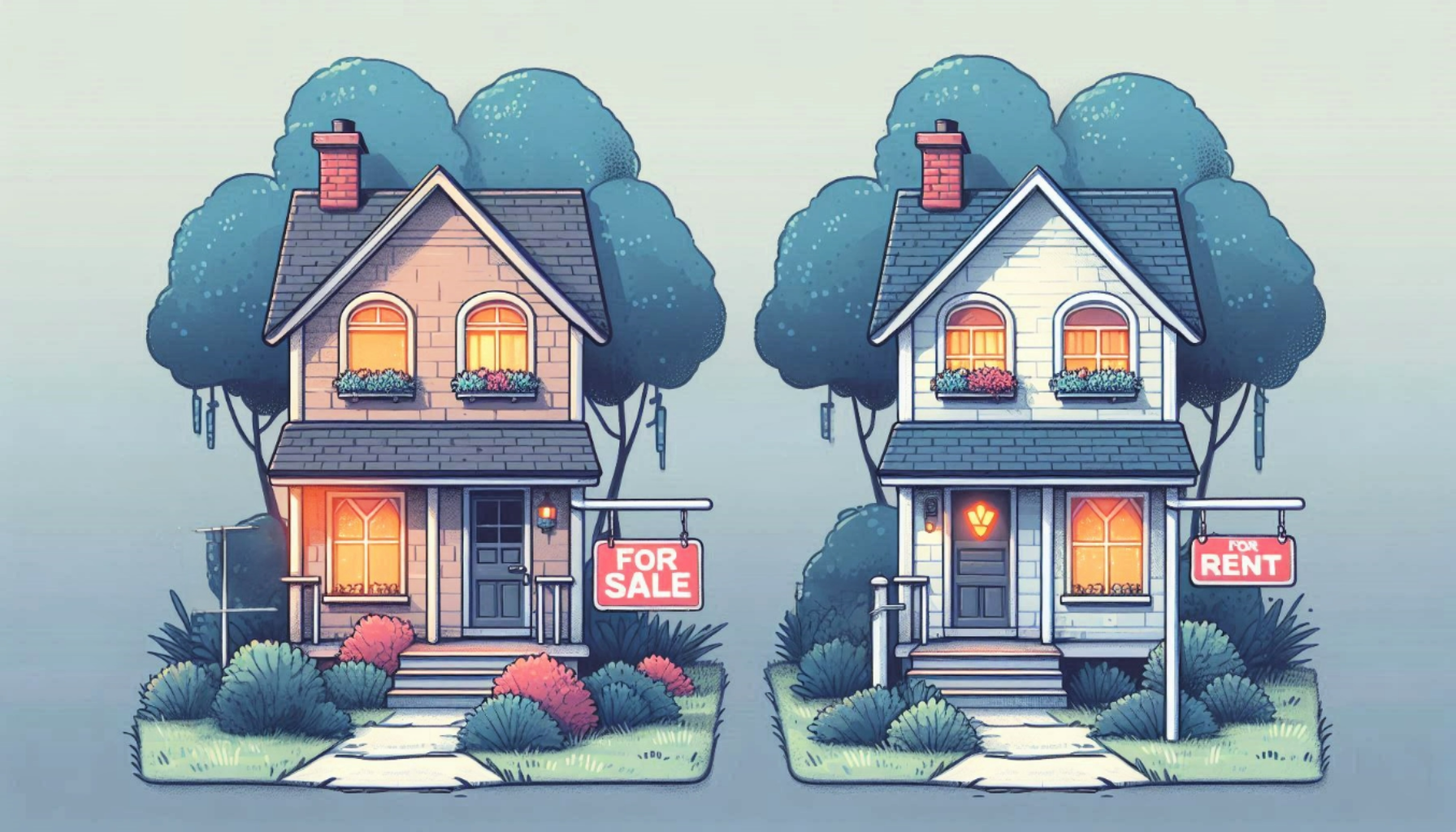Landlord Blog
Education and news for smart DIY landlords!
Should You Rent or Sell Your Home? Pros and Cons to Consider

Deciding whether to rent or sell your home is a major financial and personal decision. Each option comes with its own set of benefits and drawbacks, and the best choice depends on your current situation, long-term goals, and the housing market. Here’s a breakdown of the pros and cons of renting versus selling to help you make an informed decision.
Pros of Renting Out Your Home

Steady Passive Income:
Renting your home can provide a consistent stream of income, especially if your mortgage is already paid off or covered by rent payments. This income can supplement your finances or help fund future investments.
Property Appreciation:
If the market is expected to rise, holding onto your property allows you to benefit from increased property value over time while still earning rental income.
Flexibility to Return:
Renting lets you keep the option of moving back in the future. This can be especially appealing if your relocation is temporary or uncertain.
Tax Benefits:
Landlords may qualify for several tax deductions, including mortgage interest, property depreciation, maintenance costs, and insurance.
Cons of Renting Out Your Home
Landlord Responsibilities:
Being a landlord comes with responsibilities like property maintenance, dealing with tenants, and addressing emergencies. If you’re not prepared, it can become stressful and time-consuming.
Read more: What Are the Top Issues Rental Property Owners Face? And How to Handle Them
Vacancy Risks:
There’s always a risk your property could sit vacant between tenants, leading to a loss of income while you still have to cover expenses like mortgage payments and utilities.
Read more: 7 Proven Ways to Reduce Your Rental Property's Vacancy Rates
Legal and Insurance Obligations:
Renting out a home requires you to follow landlord-tenant laws and possibly update your insurance to landlord coverage, which can be more expensive.
Property Wear and Tear:
Renters may not treat the home with the same care as an owner, leading to more wear and tear or damage that could impact resale value later.
Pros of Selling Your Home

Immediate Cash Flow:
Selling your home can free up a large sum of money, which can be used to pay off debts, fund a new home purchase, or invest elsewhere.
Simplicity and No Long-Term Commitment:
Selling allows you to move on without the ongoing responsibilities of property management or tenant concerns.
Capitalize on a Hot Market:
If property values are high in your area, selling now may allow you to take advantage of maximum returns.
Avoid Market Uncertainty:
Selling eliminates the risk of future market downturns that could decrease your home’s value over time.
Cons of Selling Your Home
Loss of Future Appreciation:
Once sold, you no longer benefit from potential increases in property value or rental income.
Transaction Costs:
Selling a home involves costs such as agent commissions, closing fees, and possible repairs to make the home market-ready.
Tax Implications:
Depending on your situation, you may face capital gains taxes if the home isn’t your primary residence or if you’ve owned it for less than two years.
Conclusion
Choosing whether to rent or sell your home is a decision that hinges on your financial needs, lifestyle plans, and the real estate market. If you’re looking for long-term investment and can handle the responsibilities, renting could be the way to go. If you need liquidity or want to simplify your life, selling may be more practical. Weighing the pros and cons carefully can help you decide what aligns best with your goals.
